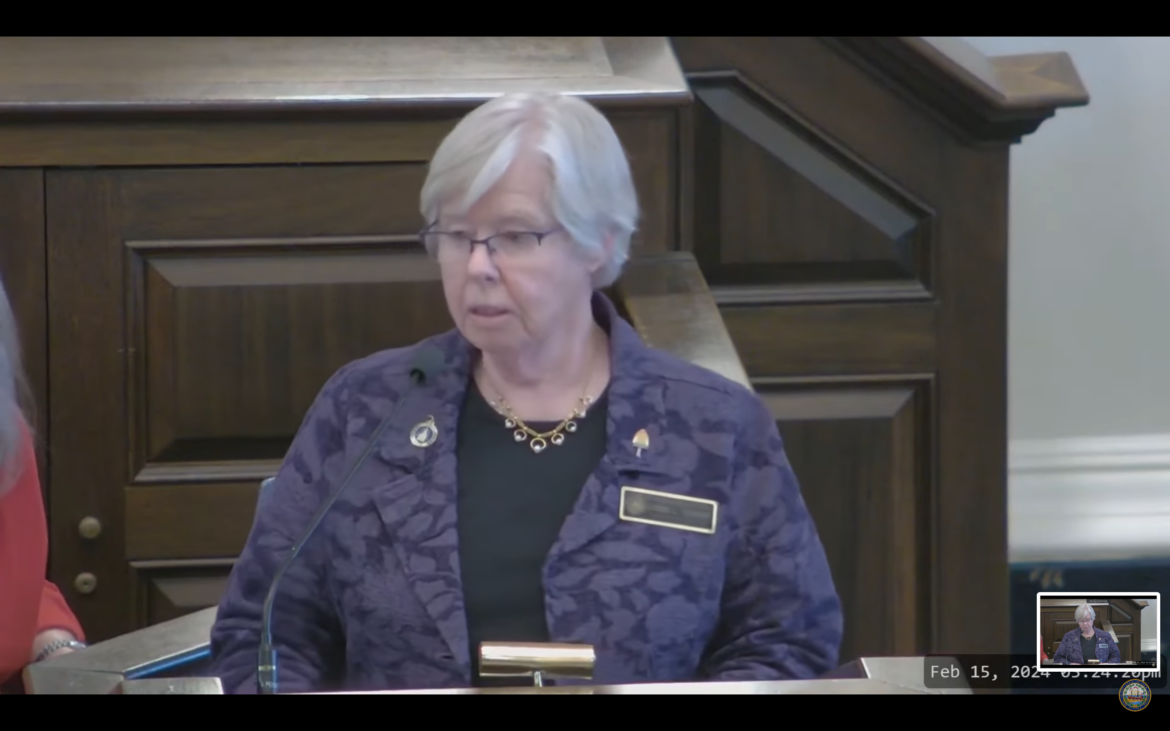By GARRY RAYNO, InDepthNH.org
CONCORD — Debate grew heated in the House Thursday over a bill to remove allegedly inappropriate educational materials and books from classrooms and school libraries.
Opponents of House Bill 1419 said it amounted to book banning and censorship and allowing a small group of parents to determine what all students are allowed to access.
But supporters said there are sexually explicit and other material not appropriate for students in schools that should not be there and many parents find the current process to remove the material unhelpful.
The House eventually voted to kill the bill and block it or similar material from coming before the House again until the end of the term in December.
The bill’s prime sponsor, Rep. Glenn Cordelli, R-Tuftonboro, read two graphic pieces he said were available to middle school students, one dealing with rape and the other sexual intercourse that brought howls from some House members and several rebukes from House Speaker Sherman Packard.
Rep. Lucy Weber, D-Walpole, objected to what he was reading and called for a vote of the House to determine if he should continue.
She said while some found what he read inappropriate others in the hall who were the victims of rape and abused were triggered and others had post-traumatic stress disorder.
Cordelli was allowed to continue speaking on a 201-173 vote. He noted if the material was inappropriate for some people in the House it is also inappropriate to be in schools.
Cordelli said there are books and materials that are sexually explicit, about suicide, about cutting yourself, noting that cannot be good for students’ mental health.
He maintained what he proposes is not a book ban, it is about inappropriate and harmful material available to minors and a process to have it removed.
Others said there are materials online that show threesomes, bondage and sado masochism, and sites that encourage adults and minors to meet.
But opponents of the bill said it would violate the long standing understanding of community standards that are set by the community and not the state or federal government.
They said the current complaint process starts with the school principal, and moves up the chain to the superintendent and eventually the school board works and allows for the community and the elected and accountable school board members to be the final arbitrator, not the state school board as Cordelli’s bill would do.
One House member noted the board is politically appointed and not elected so there is no accountability for its decision.
Under the bill, the exemption for education under the state’s obscenity law would remove kindergarten through 12th grade.
Cordelli noted the criminal statute would likely not be applied but some opponents questioned whether that would be the case.
They said the definition of harmful material is so vague it could lead to removals for material that has met community standards for years.
The only penalties under his bill, Cordelli said, would occur if a book or material were not removed after a final decision to remove it.
Rep. Mel Myler, D-Hopkinton, called it an extreme and controversial bill that will ban books and censor material.
Individual parents have a right to select the books and material for their child but they do not have the right to select that for all parents, he said.
Teachers and librarians should not be subject to arrest for professionally making material available to students to help them develop critical thinking skills, Myler said.
He noted a bipartisan bill to address this very issue that is constructive and reasonable will be before the House soon.
Rep. Linda Tanner, D-Sunapee, said the bill would lead to censorship and noted some of the books that had been censored over the years, like “To Kill a Mockingbird,” “The Diary of Anne Frank,” and “Huckleberry Finn.”
Much of the focus has been on gay and lesbian books and black people and others of color, she said.
It is already illegal to distribute obscene material to a minor, Tanner said, and there is no exemption for educators under the current law.
And she said the State Board of Education is a bad final arbitrator when the decision should be made at the local level.
“Censorship is serious and has dangerous consequences,” Tanner said. “Growing up today is hard.”
Some students are marginalized, feel different, are
fearful of rejection and depression, she said.
If some of these materials are taken away from schools and libraries, Tanner said, that will take away their humanity, their respect and self-esteem instead of opening a window on a world where they can be their authentic selves.
The House first voted to table the bill 192-181, but later in the day voted to reconsider the vote and bring it off the table, which they did.
After defeating a motion to pass the bill 187-162, the House voted by the same vote to indefinitely postpone the bill, which means it cannot come before the House again this term.
Garry Rayno may be reached at garry.rayno@yahoo.com. Garry Rayno has been a reporter in New Hampshire for 40 years.





